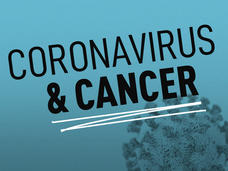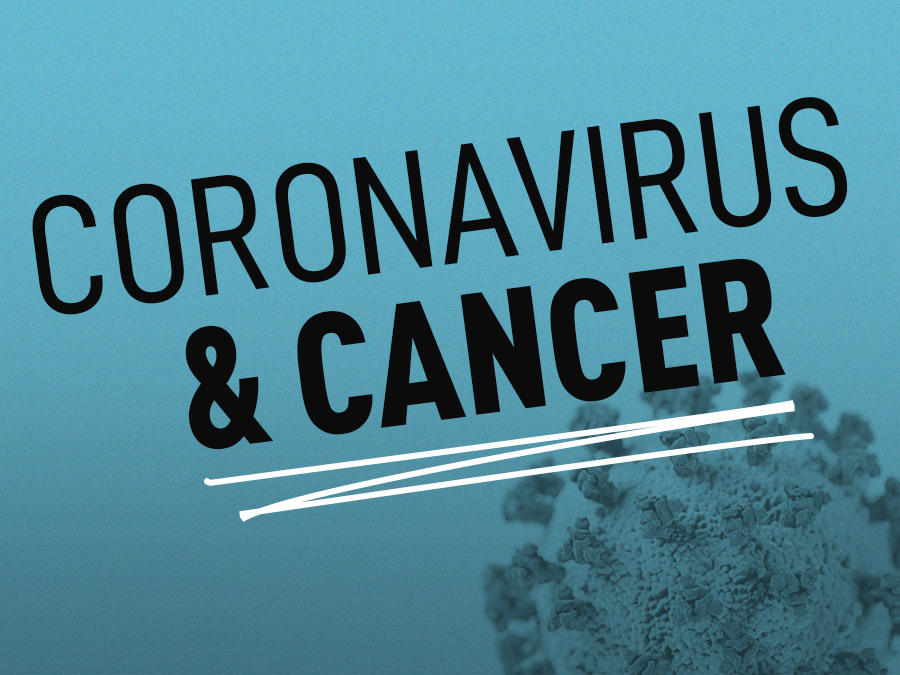, by NCI Staff
NCI’s collection of cancer information products is constantly growing, so we provide periodic updates on new and updated content of interest to the cancer community.
Coronavirus Information for Patients and Researchers
Since the coronavirus emergency began, NCI has produced numerous pages with information about the virus, SARS-CoV-2, and the disease it causes, COVID-19, for both lay audiences and the research community. To help people quickly find the information they need, NCI has collected those pages into patient and researcher hubs. The coronavirus patient hub includes information about how patients with cancer can protect themselves, what they should do if they have symptoms of an infection, coping suggestions, and information about cancer clinical trials during the COVID-19 emergency. The coronavirus researcher hub includes information about guidance for the research community and funding opportunities.
New Healthcare Delivery Research Program Resources
NCI’s Division of Cancer Control and Population Science (DCCPS) has produced two new web-based resources for its Healthcare Delivery Research Program. A new module of the PRO-CTCAE (a tool for patients to self-report treatment-related side effects experienced in cancer clinical trials) is now available to enable self-reporting by children and adolescents ages 7‒17 (Ped-PRO-CTCAE), or proxy reporting by a caregiver for children younger than 7 years of age (Ped-PRO-CTCAE [Caregiver]).
The second resource is a new website for the SEER–Medicaid Linked Data Resource. The linkage of these two large population-based data sources provides information about Medicaid beneficiaries with cancer, enabling an array of epidemiological and health services research.
DCCPS Websites Updated
DCCPS has also redesigned and added new data to its Classification of Laws Associated with School Students (CLASS) website. The CLASS site houses important information on physical education and nutrition policies across the United States to provide researchers, policymakers, and educators with data to examine the relationship between these policies and student and school outcomes, such as childhood inactivity and time allocated for physical education classes.
Additionally, new data has been added to the websites of the Health Information National Trends Survey (HINTS), a project that collects nationally representative data on changes in health communication and information technology, and the Tobacco Use Supplement to the Current Population Survey (TUS-CPS), an NCI-sponsored survey of tobacco use administered as part of the US Census Bureau’s Current Population Survey.
NCI Technology Research Advocacy Partnership
NCI’s Center for Strategic Scientific Initiatives recently launched a microsite for the NCI Technology Research Advocacy Partnership (NTRAP). NTRAP incorporates the perspective of cancer patients and survivors into programs that support the development of technologies that may improve cancer research.
NCI Cancer Research Data Commons Website Launched
NCI’s Center for Biomedical Informatics and Information Technology (CBIIT) has launched a new website for the NCI Cancer Research Data Commons (CRDC). The website serves as an entry point for visitors interested in accessing all current CRDC data repositories, analyzing data, reviewing available data sets and analytics tools, and learning more about the CRDC.
Cancer Data Science Pulse Blog
CBIIT has also published several new posts to its Cancer Data Science Pulse blog, including posts about a new Cancer Data Aggregator (CDA) tool that is currently being designed and developed, the DREAM Challenge to harmonize data, and a biography of CBIIT scientist Mervi Heiskanen, Ph.D.
NCI News Release—Effective, Less Toxic Treatment for Adults with Burkitt Lymphoma
In a new study, a treatment regimen that is less toxic than standard dose-intensive chemotherapy was found to be highly effective for adults with Burkitt lymphoma across all age groups, regardless of HIV status. Besides being better tolerated, the regimen, called dose-adjusted (DA) EPOCH-R, is already a treatment option for diffuse large B-cell lymphomas and can be given in an outpatient setting.
NCI News Release—NIH Scientists Develop Blood Test to Help Improve Liver Cancer Screening
Scientists have developed a simple blood test that can help identify people likely to develop hepatocellular carcinoma (HCC), the most common form of liver cancer. The new test checks for the patient’s previous exposure to certain viruses and could help doctors find and treat HCC early.
Cancer Prevention Fellowship Program
NCI’s Division of Cancer Prevention is accepting applications for its Cancer Prevention Fellowship Program. This multidisciplinary postdoctoral program trains future leaders in the field of cancer prevention and control. The application period closes August 17.
Center for Global Health Cancer Control and Funding Opportunities
NCI’s Center for Global Health has announced several new funding opportunities, including applications for Strengthening Institutional Capacity to Conduct Global Cancer Research in Low- and Middle-Income Countries and an Administrative Supplement Opportunity to Stimulate or Strengthen Global Cancer Health Disparities Research.
New DCEG Linkage Articles
NCI’s Division of Cancer Epidemiology and Genetics (DCEG) has published several new articles in its Linkage newsletter. Among the topics covered are a study examining the global occurrence of gastrointestinal cancers, a meta-analysis of genome-wide association studies for cutaneous melanoma, and a study of the risk of death associated with low-intensity, nondaily smoking.
CCR Websites Highlight Research Milestones
NCI’s Center for Cancer Research (CCR) has published a digital version of its 2020 Milestones collection of research highlights and updated its Research page to highlight areas of excellence, special initiatives, and research programs. CCR’s website also has a new section that features the center’s immunology and immunotherapy research and clinical trials. And the center has produced a Spanish-language microsite for its NCI-CONNECT brain and spine tumor program that includes information on diagnosis, symptoms, and treatment.
Videos—Clinical Trials for Brain and Spine Tumors
The NCI-CONNECT Clinic at NIH has published a series of videos for patients with rare brain and spine tumors and their physicians.
- In Clinical Trials for Brain and Spine Tumors, Mark Gilbert, M.D., director of the NCI-NIH Neuro-Oncology Branch, and Brett Theeler, M.D., from Walter Reed Military Medical Center, explain clinical trials, why they’re beneficial for people with a brain or spine tumor, how to participate, and where to find open clinical trials.
- In Clinical Trials Development for People with Rare CNS Cancers, Dr. Theeler shares how NCI-CONNECT at NIH is developing new clinical trials for people with rare central nervous system cancers.
- Neuropathologist Kenneth Aldape, M.D., talks in NCI-CONNECT Clinic: Pathology Review about the importance of an accurate diagnosis for precision medicine and the advantages of participating in the NCI-CONNECT Clinic at NIH.
Advances in Lymphoma Research
NCI-funded researchers are working to advance the understanding of how to better prevent, detect, and treat lymphoma in adults and children. This new page highlights some of the latest research on lymphoma.
Infographic—What is SEER?
This infographic helps explain SEER, NCI’s program to track cancer cases and deaths in the United States. Data from this program show trends that help inform future research efforts.







